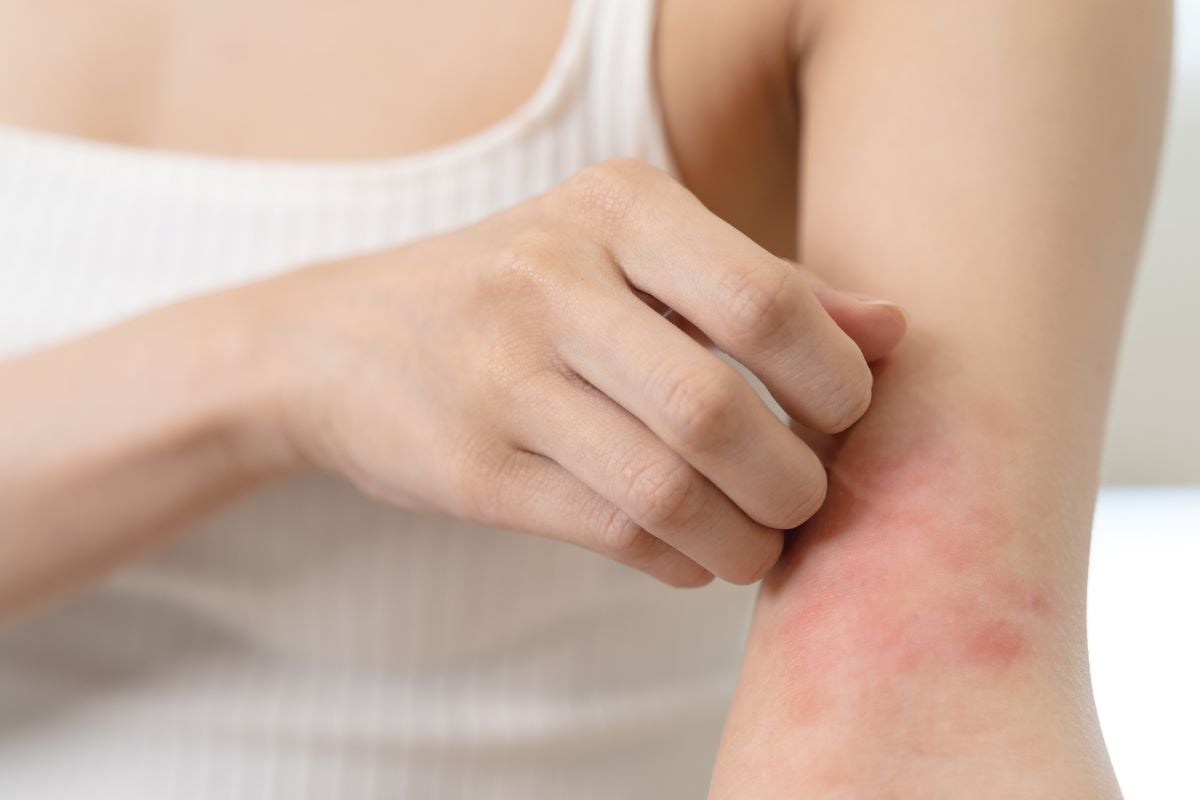23.8 percent of patients discontinued dupilumab, with adverse events and ineffectiveness the most common reasons
By Elana Gotkine HealthDay Reporter
MONDAY, Aug. 12, 2024 (HealthDay News) — For patients with atopic dermatitis (AD), dupilumab maintains its clinical effectiveness up to five years and is discontinued by 23.8 percent of patients, according to a study published online Aug. 7 in JAMA Dermatology.
Celeste M. Boesjes, M.D., from the University Medical Center Utrecht in the Netherlands, and colleagues examined clinical effectiveness and reasons for discontinuation of dupilumab treatment in 130 children, 1,025 adults, and 131 older adults with AD with up to five years of treatment.
The researchers found that most adults maintained controlled AD, with an Eczema Area and Severity Index (EASI) score of 7 or lower varying from 78.6 to 92.3 percent and a numeric rating scale (NRS) for pruritus of 4 or lower varying from 72.2 to 88.2 percent for up to five years of treatment; up to 70.5 percent of all patients extended the dosing interval to mostly 300 mg every three or four weeks. After five years of treatment, the mean EASI and NRS for pruritus were 2.7 and 3.5, respectively. After six months of treatment, median thymus- and activation-related chemokine levels decreased considerably, from 1,751 to 390 pg/mL, and remained low. The median eosinophil levels increased temporarily to week 16, then decreased significantly over time. After a median of 54.0 weeks, 23.8 percent of patients discontinued dupilumab, with adverse events and ineffectiveness being the most frequently reported reasons (7.6 and 6.6 percent, respectively).
“This study highlights the importance of multicenter registries to evaluate long-term treatment effects in large daily practice cohorts,” the authors write.
Several authors disclosed ties to pharmaceutical companies, including Sanofi and Regeneron, which manufacture dupilumab.
Copyright © 2024 HealthDay. All rights reserved.








